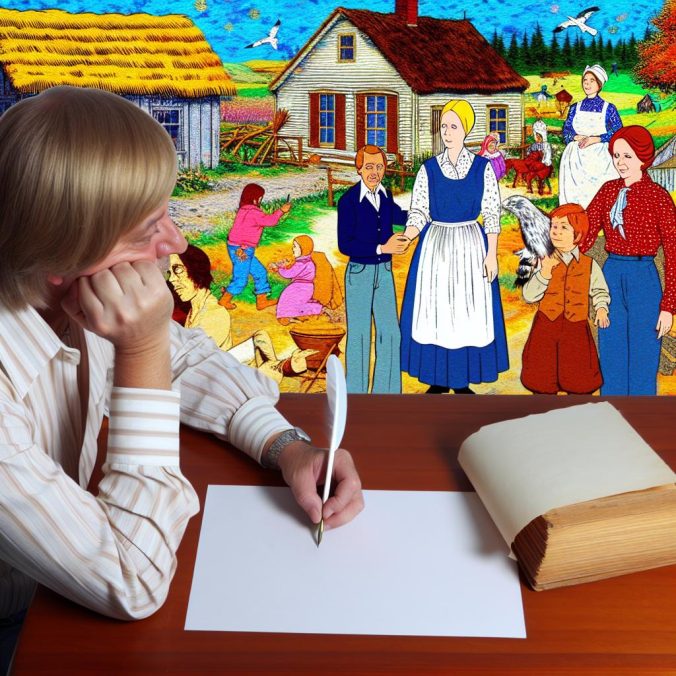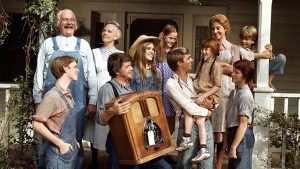Introduction to Earl Hamner Jr. and The Waltons
Earl Hamner Jr. was an American television writer and producer who is best known for creating the popular television series The Waltons. The show, which aired from 1972 to 1981, offers a glimpse into American family life during the Great Depression and World War II. The series was largely inspired by Hamner’s own life experiences growing up in rural Virginia.
Early Life and Family Background
Earl Hamner Jr. was born in Schuyler, Virginia, in 1923. He was the eldest of eight siblings, a family dynamic that played a critical role in shaping the Walton family depicted in the series. Growing up in the Appalachian region, Hamner experienced firsthand the values of hard work, community, and resilience that are central themes in The Waltons.
Growing up in Schuyler, a small rural town, Hamner’s family faced the challenges synonymous with the era, including financial hardship. Despite these challenges, or perhaps because of them, the values instilled in him by his parents guided his path in both life and writing. His father worked as a machinist for the soapstone company that was foundational to Schuyler’s economy, while his mother managed the household with care and resourcefulness. These figures would later be immortalized in characters like John and Olivia Walton, capturing the essence of parental strength and guidance amidst adversity.
Transition From Radio to Television
Before creating The Waltons, Earl Hamner Jr. pursued a career in writing for radio and later transitioned to television. He initially gained recognition in Hollywood for his work on the television series The Twilight Zone. His story, “The Gift,” is often cited as an example of his early success. The move from radio to television presented new opportunities for Hamner to explore narrative storytelling, eventually leading him to develop The Waltons.
Radio writing allowed Hamner to hone his skills in crafting compelling narratives with rich detail, an ability that would prove crucial to his television work. His experiences in radio taught him to convey emotions and settings vividly through dialogue and sound, skills that seamlessly translated to the visual medium of television. Unlike radio, television provided Hamner the ability to visually represent the intricate world he imagined, blending visual storytelling with the strong familial themes he cherished.
Development and Success of The Waltons
The Waltons was originally intended as a television special titled The Homecoming: A Christmas Story, which aired in 1971. Due to its success, it was developed into a full television series by CBS. The show’s portrayal of a close-knit family navigating challenges with integrity and perseverance resonated with many viewers and contributed to its popularity. The series won numerous awards, including Emmys and a Peabody Award, further solidifying its cultural impact.
The series was poignant not only for its historical setting but also for its timeless narrative of family and community unity. Each episode of The Waltons offered viewers a lesson in resilience, often using storylines based on real-life events experienced by Hamner or his family members. The show’s longevity and acclaim were partly due to its universal appeal, gently exploring themes of love, sacrifice, ambition, and loss against a backdrop of major historical events.
A particularly significant aspect of The Waltons was its portrayal of moral dilemmas and the decisions that defined the characters’ lives. The show emphasized that even ordinary lives were filled with important, dramatic moments deserving of reflection and storytelling. This approach encouraged viewers to see the value in their own life experiences, affirming that dignity and courage could be found in everyday actions and decisions.
Legacy and Influence
Earl Hamner Jr.’s creation had a lasting influence on American television, inspiring future family dramas with its authentic depiction of domestic life and moral values. The Waltons continues to be remembered as a charming and insightful portrayal of a bygone era, reflecting the core values and experiences of Hamner’s own upbringing. For those interested in learning more about Earl Hamner Jr. and The Waltons, various resources and insights are available through television archives and interviews with Hamner himself.
The legacy of The Waltons extends beyond its initial broadcast years, impacting how families were depicted in television. It opened doors for shows that followed a similar vein, combining historical contexts with rich family dynamics. Moreover, the cultural references to The Waltons in various forms of media underscore its enduring relevance, as the series encapsulates an American ethos that resonates across generations.
This influence is evident not just in the thematic echoes found in subsequent family dramas but also in how storytelling evolved in the television industry. The Waltons’ success outlined a blueprint for series aspiring to balance entertainment with deep moral inquiry. Hamner’s ability to draw from personal history not only provided authenticity but also encouraged a new wave of television where personal narratives became a powerful tool for connection and engagement with audiences.
To explore further about the works and life of Earl Hamner Jr., consider visiting the official site for additional resources, behind-the-scenes insights, and information about The Waltons. Such resources offer a way to delve deeper into the behind-the-scenes aspects and additional information about the series and its creator, broadening understanding of Hamner’s lasting impact on television and storytelling.


